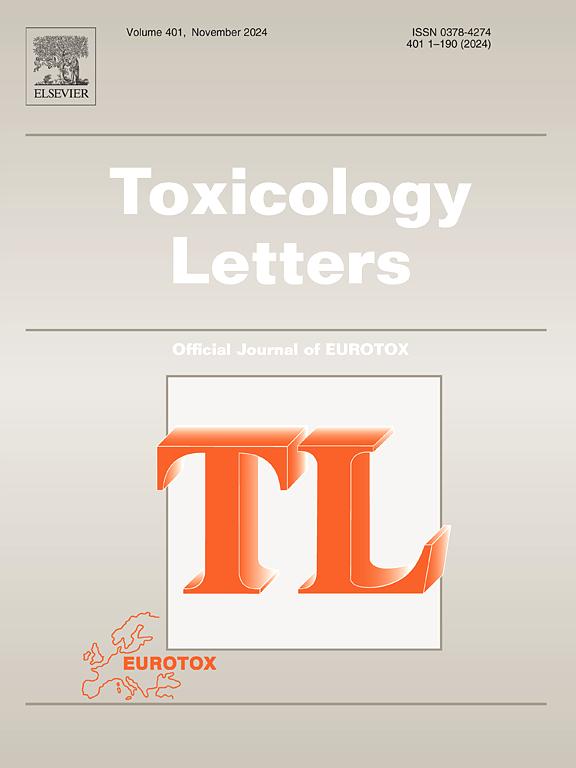Leonurine protects against cisplatin-induced ototoxicity through its anti-oxidation and anti-apoptosis properties
IF 2.9
3区 医学
Q2 TOXICOLOGY
引用次数: 0
Abstract
Cisplatin has a high efficacy for treating solid tumors, but it is generally accompanied by ototoxic side effects. Leonurine (LEO) has anti-oxidative and anti-apoptotic effects, although its role in the treatment of cisplatin-induced hearing impairment (CIHI) remains unclear. Here, we explored in vitro and in vivo models of cisplatin injury and analyzed the efficacy of LEO on cisplatin-induced ototoxicity by immunofluorescence, otoacoustic assessment, qRT-PCR, and Western blot. At the cellular level, LEO reduced oxidative stress and apoptosis, while at the organism level LEO protected guinea pigs against CIHI and maintained the hearing thresholds of cisplatin-treated guinea pigs at 50–55 dB. LEO effectively prevented cisplatin-induced decreases in hair cells, supporting cells, spiral ganglion neurons and ribbon synapses; reduced Cleaved Caspase 3 expression through activation of Bcl-2 and reducing reactive oxygen species (ROS) accumulation and improving mitochondrial membrane potential and reduced cisplatin-induced apoptosis by increasing the expression of Nrf2/Nqo1. In conclusion, the present study expands the application range of LEO and suggests that LEO is a potential therapeutic agent for preventing cisplatin ototoxicity.
狮子尿通过其抗氧化和抗细胞凋亡的特性,对顺铂诱导的耳毒性具有保护作用。
顺铂治疗实体瘤疗效高,但普遍伴有耳毒性副作用。狮子座尿(LEO)具有抗氧化和抗细胞凋亡作用,但其在顺铂性听力损伤(CIHI)治疗中的作用尚不清楚。本研究通过免疫荧光、耳声评估、qRT-PCR、Western blot等方法,探索顺铂体外和体内损伤模型,分析LEO对顺铂所致耳毒性的影响。在细胞水平上,LEO可降低氧化应激和细胞凋亡,而在机体水平上,LEO可保护豚鼠抗CIHI,并将顺铂处理豚鼠的听力阈值维持在50-55dB。LEO有效预防顺铂诱导的毛细胞、支持细胞、螺旋神经节神经元和带状突触的减少;通过激活Bcl-2,减少活性氧(ROS)积累,提高线粒体膜电位,降低Cleaved Caspase 3的表达,通过增加Nrf2/Nqo1的表达,减少顺铂诱导的细胞凋亡。综上所述,本研究拓展了LEO的应用范围,提示LEO是预防顺铂耳毒性的潜在治疗剂。
本文章由计算机程序翻译,如有差异,请以英文原文为准。
求助全文
约1分钟内获得全文
求助全文
来源期刊

Toxicology letters
医学-毒理学
CiteScore
7.10
自引率
2.90%
发文量
897
审稿时长
33 days
期刊介绍:
An international journal for the rapid publication of novel reports on a range of aspects of toxicology, especially mechanisms of toxicity.
 求助内容:
求助内容: 应助结果提醒方式:
应助结果提醒方式:


